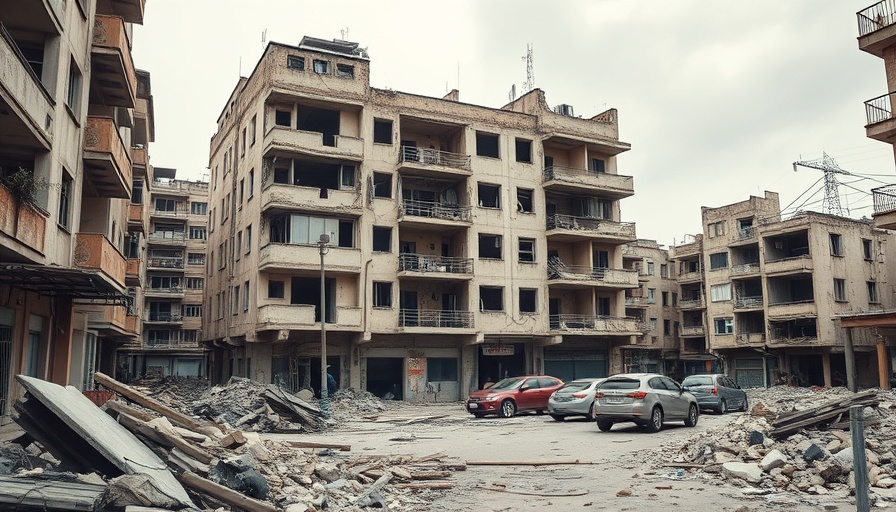
Rising Tensions in Gaza: The Impact of Targeted Killings
The ongoing conflict between Israel and Hamas has reached a new level of intensity with Israel's recent military actions in Gaza City. The killing of Abu Obeida, a prominent spokesperson for Hamas’ Qassam Brigades, underscores Israel's strategy to undermine Hamas' leadership. Israeli Defense Minister Israel Katz confirmed the operation, revealing the continued focus of Israeli forces to target key figures within the militant group as part of an escalating offensive.
A Deadly Weekend: Casualties on Both Sides
As Israel intensifies its campaign, reports indicate at least 43 Palestinians lost their lives in recent operations, predominantly in Gaza City. Hospitals, notably Shifa Hospital, have been overwhelmed, receiving victims as airstrikes and ground operations continue. This raises significant humanitarian concerns, highlighting the dire situation for civilians caught in the crossfire. Eight of the deceased were reportedly seeking medical aid when they were struck, illustrating the unpredictable dangers in an already desperate environment.
The Strategic Importance of Gaza City
Gaza City has become a focal point in the conflict due to its strategic importance for Hamas and the Israeli military’s broader objectives. By declaring the area a combat zone, Israel emphasizes its determination to dismantle Hamas’ military capabilities and prevent possible attacks reminiscent of the devastating events of October 7, 2023. On that date, militants caused widespread chaos, resulting in significant casualties.
Regional Reactions: What Does This Mean for the Middle East?
The latest incidents in Gaza prompt a wider discussion about the implications for the Middle East. Regional powers are closely observing the actions and rhetoric from both sides, with concerns about the potential for escalated violence spilling over into neighboring territories. This cycle of violence raises questions about peace negotiations and the future of Israeli-Palestinian relations, leaving many to wonder if a resolution is achievable amidst ongoing aggression.
The Human Cost of Warfare: What About the Civilians?
Civilian casualties are a tragic consequence of military engagements, and the recent deaths in Gaza City underscore the importance of addressing the humanitarian crisis arising from this conflict. Many in the international community urge for protection measures for non-combatants and humanitarian access, acknowledging that civilians should not bear the brunt of geopolitical strategies. Israel’s government faces scrutiny over its military operations and the collateral damage affecting civilians, pressing for a reconsideration of tactics.
Future Predictions: Will Violence Escalate?
The events of this weekend could mark a turning point in the ongoing conflict. If Israel continues its aggressive approaches, retaliatory attacks from Hamas may follow, exacerbating the violence. Analysts suggest that without discernible efforts towards dialogue or reconciliation, the cycle of violence is likely to persist, affecting not only those in Gaza but destabilizing the entire region. As previous encounters have shown, an escalation could lead to broader military involvement from regional powers, complicating an already tense situation.
Towards a Sustainable Solution: Engaging Global Perspectives
With each violent clash, the need for a sustainable resolution becomes more pressing. The involvement of international mediation could play a significant role in alleviating tensions. Both sides must recognize the necessity of dialogue, supported by global actors who can facilitate a peaceful discourse. Whether through a two-state solution or renewed peace talks, the international community’s role can be pivotal in forging a path toward stability.
In conclusion, as Israel pursues its military objectives in Gaza, the casualties continue to mount, raising questions about the humanitarian impacts and future ramifications of these actions. The drive for peace remains challenged by the ongoing violence, making it imperative for global leaders to engage constructively in the pursuit of resolution.
 Add Row
Add Row  Add
Add 




Write A Comment